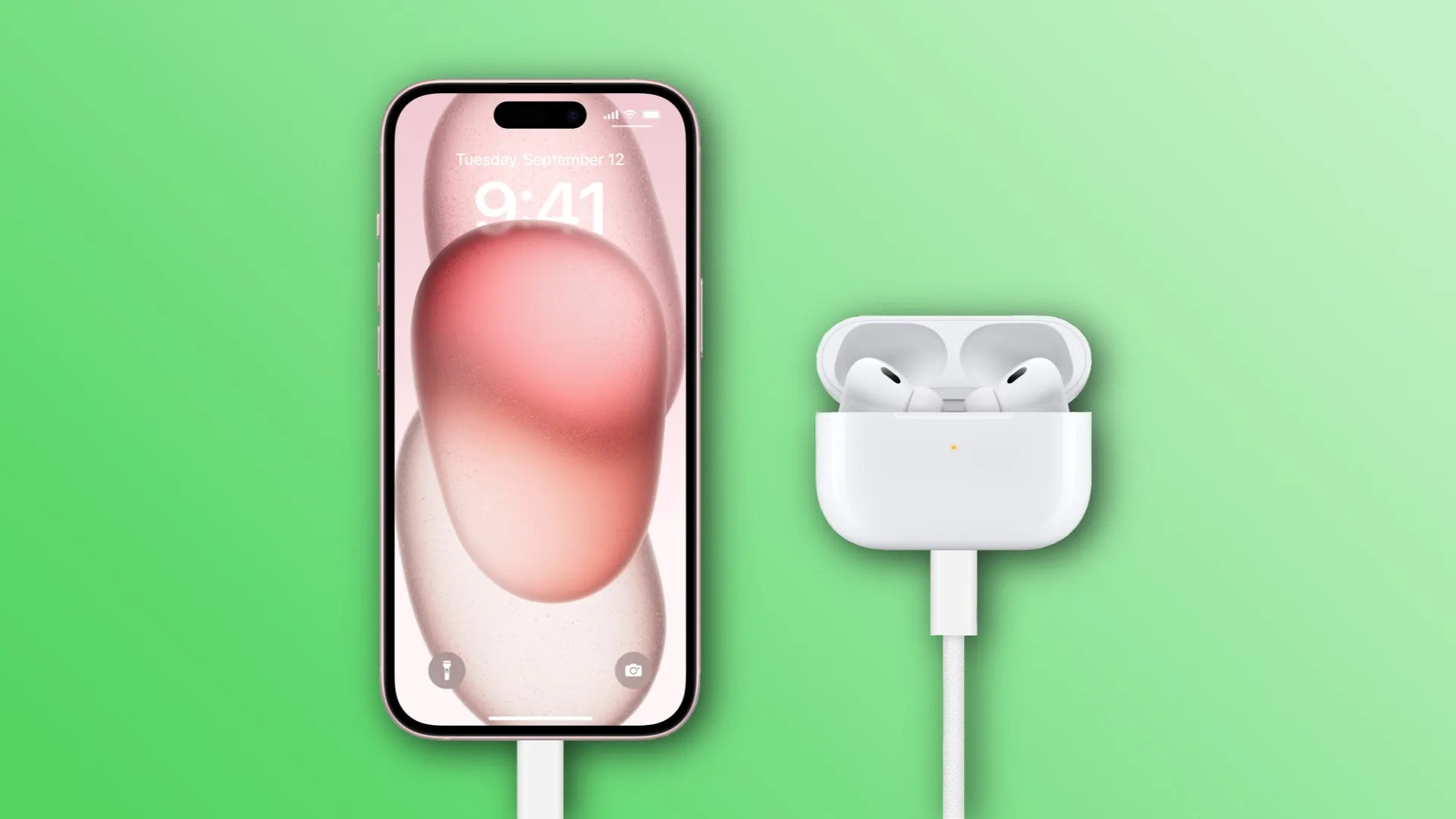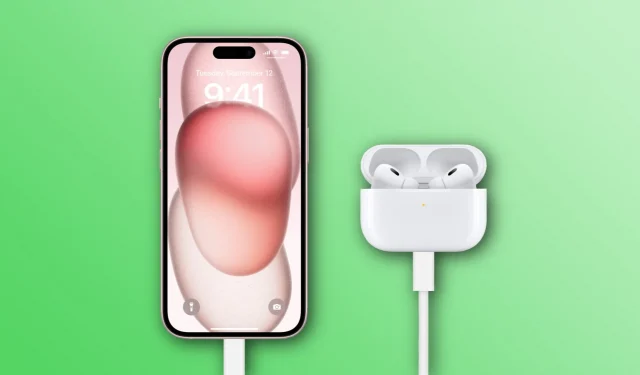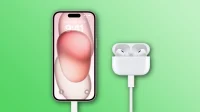One of the perks of Apple’s adoption of USB-C is the ability to charge your AirPods or Apple Watch via the iPhone 15’s USB-C port.

Charging AirPods Pro via the iPhone’s USB-C port | Image: Apple
Charging the AirPods or Apple Watch this way might deplete the iPhone’s battery, so you’ll want to restrict this to emergency cases with no other options available.
Apple is adopting USB-C across all products to comply with EU regulators. At its “Wonderlust” event, the company announced that the iPhone 15, iPhone 15 Plus, iPhone 15 Pro and iPhone 15 Pro Max feature a USB-C port in place of Lightning.
The official iPhone 15 and iPhone 15 Pro press releases confirm that bidirectional charging is now a reality. “Users can also charge AirPods or Apple Watch directly from iPhone with the USB‑C connector,” it reads.
Can you charge AirPods Pro or Apple Watch with iPhone?
Yes, with some caveats. For starters, you’ll need a USB-C iPhone like one of the iPhone 15 or iPhone 15 Pro models. Any USB-C iPhone doubles as a portable power bank that can be used for charging low-powered devices.
Only the updated second-generation AirPods Pro and Apple Watch can be charged with an iPhone 15 or iPhone 15 Pro. The second-generation AirPods Pro have been refreshed with a USB-C charging case, and other models will get one in 2024. You’ll also need a USB-C to USB-C cable to charge these earbuds with your iPhone.
You can charge an Apple Watch with your iPhone using the included charging puck. All Apple Watch models ship with the included USB-C cable that supports fast charging, so you’re already covered on that front.
Needless to mention, you can also charge your AirPods Pro or Apple Watch with USB-C power banks or any other USB-C device that supports the USB Power Delivery protocol, including your MacBook.
Apple’s switch to USB-C
The iPhone maker continues its adoption of the USB-C standard across all its products to comply with EU regulators. At the September 12 “Wonderlust” event, the company unveiled the new iPhone 15, iPhone 15 Plus, iPhone 15 Pro and iPhone 15 Pro Max models equipped with a USB-C port instead of Lightning.
As mentioned, Apple has also added a USB-C port to the second-generation AirPods Pro charge case (not offered standalone, unfortunately).
Bidirectional charging is one of the benefits of the USB Power Delivery protocol that compatible devices use to negotiate their power requirements.
The same protocol makes possible the fast-charging feature. Other USB-C perks include data transfer and charging speeds that are much faster than Lightning, plus the convenience of using the same cable to charge your iPhone, iPad and Mac.


